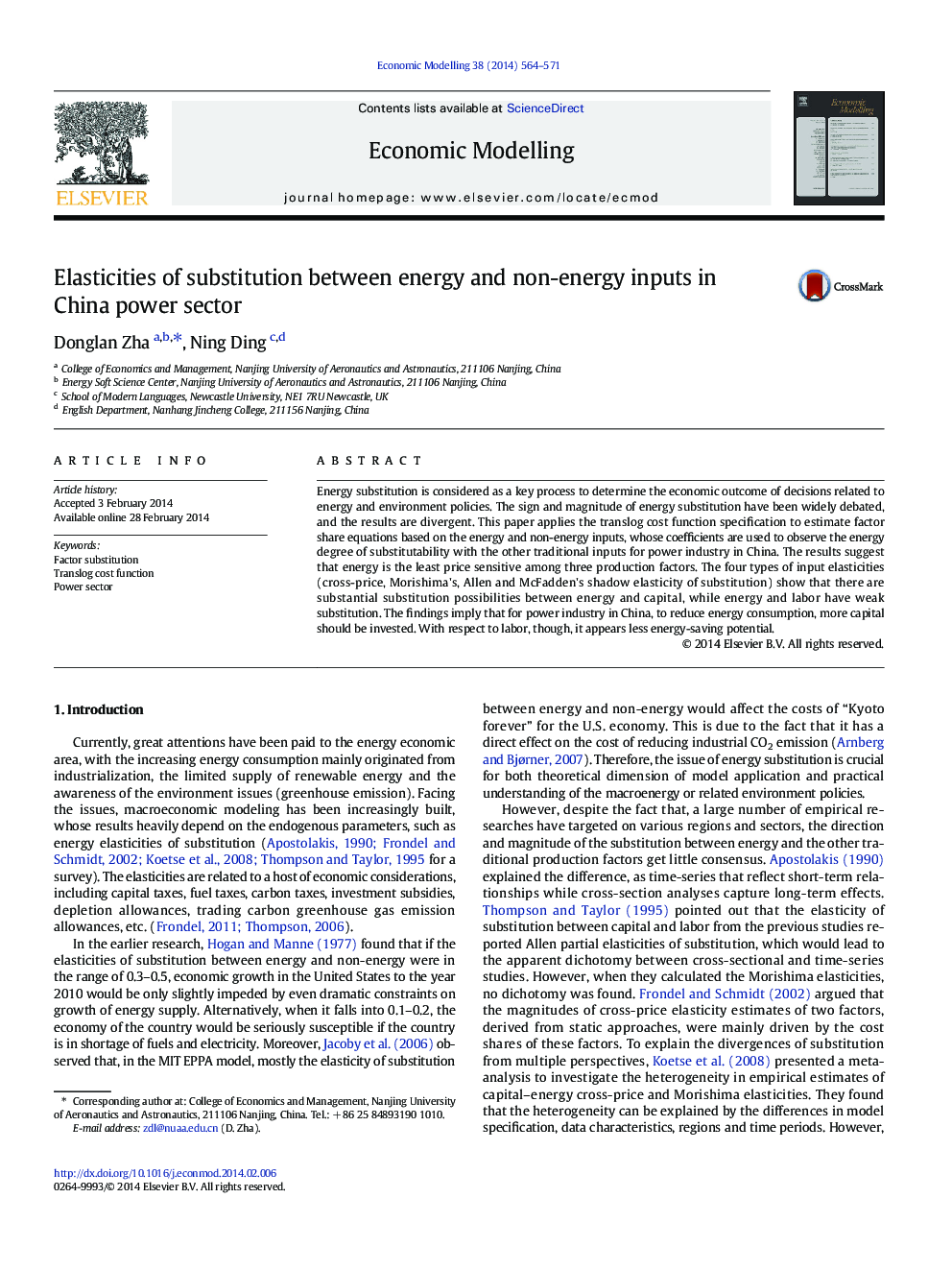| Article ID | Journal | Published Year | Pages | File Type |
|---|---|---|---|---|
| 5054407 | Economic Modelling | 2014 | 8 Pages |
Abstract
Energy substitution is considered as a key process to determine the economic outcome of decisions related to energy and environment policies. The sign and magnitude of energy substitution have been widely debated, and the results are divergent. This paper applies the translog cost function specification to estimate factor share equations based on the energy and non-energy inputs, whose coefficients are used to observe the energy degree of substitutability with the other traditional inputs for power industry in China. The results suggest that energy is the least price sensitive among three production factors. The four types of input elasticities (cross-price, Morishima's, Allen and McFadden's shadow elasticity of substitution) show that there are substantial substitution possibilities between energy and capital, while energy and labor have weak substitution. The findings imply that for power industry in China, to reduce energy consumption, more capital should be invested. With respect to labor, though, it appears less energy-saving potential.
Related Topics
Social Sciences and Humanities
Economics, Econometrics and Finance
Economics and Econometrics
Authors
Donglan Zha, Ning Ding,
